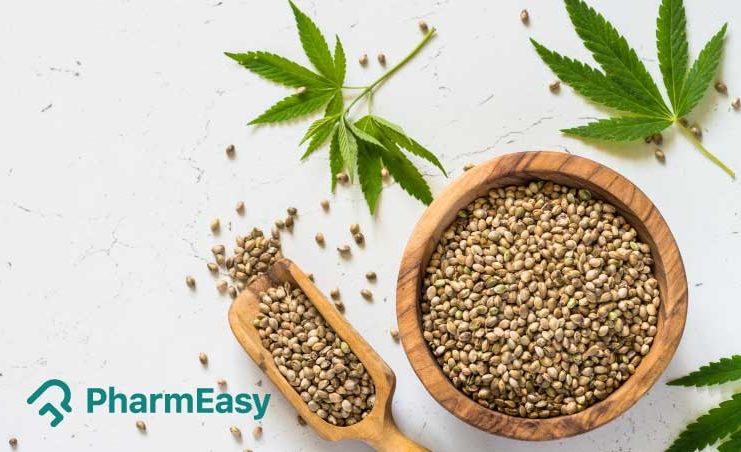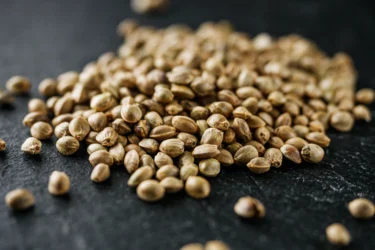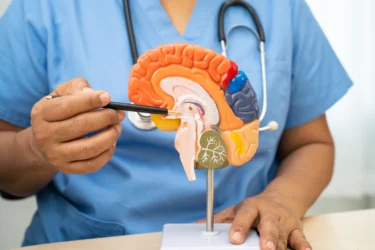Hemp Seed: Uses, Benefits and Side Effects by Dr. Smita Barode
By Dr Smita Barode +2 more

Get,

to manage your symptom
Get your,


4 Cr+ families
benefitted

OTP sent to 9988776655



You’ve successfully subscribed to receive
doctor-approved tips on
Whatsapp

Get ready to feel your best.

Hi There,
Download the PharmEasy App now!!


Register to Avail the Offer
Send OTPBy continuing, you agree with our Privacy Policy and Terms and Conditions

Hi There,
Sign up on PharmEasy now!!
Trusted by 4 crore+ families

OTP sent to 9988776655



You have unlocked 25% off on medicines




Code: NU25
By Dr Smita Barode +2 more
Table of Contents
The seeds produced from the hemp plant are edible and nutritious. Scientifically, the hemp plant is the same as marijuana (Cannabis). Although they are related to the same genus, hemp seeds do not have the same activity as cannabis. Hemp seeds contain healthy fats, nutrients, and minerals, which provide numerous benefits to Human Health. Hemp is an ancient, unisexual plant known as Cannabis Sativa L., belonging to the family Cannabaceae. It is also referred to as industrial cannabis and is used in the energy, automobile, and construction markets. The seeds of hemp or cannabis are used as a functional food, a medicinal product, animal feed, and in the preparation of herbal formulations1,2. Let us discuss the importance and health benefits of Hemp seeds.

Nutritional contents of hemp seed per 100g2:
Did you know?

A study2 by Farinon et al.,2020, investigated the role of hemp seed in hypercholesterolemia caused by ovarian hormone deficiency. The experiment showed a positive result by providing unchanged levels of cholesterol and triglycerides in plasma with hemp seed supplements in the diet. This study reveals that hemp seed may potentially manage hypercholesterolemia, which develops due to ovarian hormone deficiency. More research concerning human efficacy needs to be conducted to validate the potential use of Hemp seeds2.

Leizer et al. 2000 reported3 that omega-3, 3 PUFA (Omega-3 Polyunsaturated Fatty Acids) present in hempseed oil may have an inhibitory effect on cancerous cells and might act as an anti-cancer agent. It has also shown inhibitory effects on tumour growth. Apart from Omega-3 PUFA, hemp seed oil also contains gamma-tocopherol in significant amounts, which also has anti-cancer properties. The gamma-tocopherol is known to inhibit the cancerous growth of colon cells and reduce the damage caused to the DNA by free radicals.
However, these hemp seeds have different bioactive compounds that may deactivate the free radicals. Further clinical data are needed for validation3. Cancer is a serious disease, and if you have any symptoms related to cancer, consult your doctor and do not self-medicate.

A study2 by Farinon et al. 2020 explained the potential functionality of hemp for human Health. Further, research studies have been conducted to validate the effect of hemp seed on fat deposition in arteries, commonly referred to as atherosclerosis. It was observed that supplementing hemp seeds with a high-fat diet may decrease cholesterol levels and may prevent atherosclerosis-related changes in the aorta (the artery responsible for carrying blood from the heart to other body parts). The consumption of hemp seeds also decreases triglyceride levels and inflammation, which may reduce oxidative stress. These findings suggested that hemp seed may have the potential against atherosclerosis, but more clinical trial data is required to establish its efficacy in humans2.

The anti-aging property of hemp seed is discussed by Farinon2 et al.,2020. They showed that hemp seed mixed with a vegetable diet might have a beneficial effect on promoting Health and longevity by significantly improving the morphology of the spleen and liver, gut flora, and memory, and decreasing inflammation. These findings suggest that hemp seed may slow the ageing process. However, more studies should be conducted to establish the true extent of its efficacy on humans2.

Acetylcholine is a chemical messenger which is responsible for the normal functioning of the body and brain. The acetylcholinesterase enzyme converts acetylcholine into choline and acetate. The acetylcholine synthesis decreases with age, but the acetylcholinesterase enzyme continues with its regular activity, leading to improper brain functioning. This improper brain functioning may affect memory and cognition in the long run, leading to dementia and Alzheimer’s disease. Potin and Saurel8, 2020 mention that hemp seeds’ protein can potentially inhibit the acetylcholinesterase enzyme. The inhibition of acetylcholinesterase may slow the progression of degeneration of brain diseases. Thus, it is suggested that hemp seed may have a potential for brain degeneration, but more research data is required to validate its efficacy in human health1.
Though studies show the benefits of Hemp seed in various conditions, these are insufficient, and there is a need for further studies to establish the true extent of the benefits of Hemp seed on human Health.
Based on my observations, hemp seed extracts contain antimicrobial, anti-inflammatory, anti-lipogenic, and collagen-promoting properties. Due to the presence of these properties, hemp seeds might be quite useful in reducing the occurrence of acne6.
Dr. Siddharth Gupta, B.A.M.S, M.D (Ayu)
Hemp seeds are healthy and nutritious nuts used by humans for various purposes. Some of the uses of hemp seed are:
One should always consult an Ayurvedic physician before consuming hemp seeds in large quantities or for therapeutic benefits. They will be the best person to prescribe the correct form and dosage for your health condition.
Some studies show that hemp seeds are a rich source of omega-3 fatty acids. These omega-3 fatty acids have anti-inflammatory properties. Due to these properties, hemp seeds might help in altering micro-organisms of the digestive tract which leads to improved digestion7.
Dr. Rajeev Singh, BAMS
Also Read: Stone Flower (Kalpasi): Uses, Benefits, Side Effects & More!
People suffering from gastric irritations, ulcers, and poor metabolism should avoid using hemp seed. Pregnant and lactating mothers, the elderly, and children should use the hemp seed and its oil only after consultation with a doctor.
Also Read: Sadabahar (Periwinkle): Uses, Benefits, Side Effects and More By Dr. Rajeev Singh
Since cannabinoids, one of the constituents of hemp seeds, may increase the risk of bleeding in patients taking warfarin (an anticoagulant). People must avoid the consumption of hemp seed and consult doctors when on medication5.
Also Read: Chitrakadi Vati: Uses, Benefits, Side Effects & More!
Hemp seeds contain protein, carbohydrates, and healthy fats, which make them edible as a nutritional product. It also comprises potassium, sodium, iron, magnesium, and calcium, which adds to its nutritional value2.
Hemp seed is beneficial to human health in various ways. It acts as an anti-cancer and anti-hypertensive. It may also help in managing the degeneration of brain cells and atherosclerosis. Hemp seeds may also improve the absorption of calcium in bones. If you have the above-mentioned issues, consult the doctor and do not self-medicate1,2,3..
The chemical constituents of hemp seeds may act as anti-nutritional agents. These agents may decrease the absorption of nutrients in the body. This property of the chemical components reduces the nutritional value of the product2. If you want to include the hemp seeds, consult your doctor and do not self-medicate.
Hemp seed may help increase the longevity of cells and improve the morphology of various organs in the body, like the spleen and liver. It may also enhance learning and memory along with locomotor activity2. But, before taking these hemp seeds, consult your doctor and do not self-medicate.
People on anticoagulants (blood thinners) must avoid consuming hemp seeds. In addition, pregnant and lactating females, the elderly, and children should consult the doctor before consuming hemp seed5.
Disclaimer: The information provided here is for educational/awareness purposes only and is not intended to be a substitute for medical treatment by a healthcare professional and should not be relied upon to diagnose or treat any medical condition. The reader should consult a registered medical practitioner to determine the appropriateness of the information before consuming any medication. PharmEasy does not provide any guarantee or warranty (express or implied) regarding the accuracy, adequacy, completeness, legality, reliability, or usefulness of the information; and disclaims any liability arising thereof.
Links and product recommendations in the information provided here are advertisements of third-party products available on the website. PharmEasy does not make any representation of the accuracy or suitability of such products/services. Advertisements do not influence the editorial decisions or content. The information in this blog is subject to change without notice. The authors and administrators reserve the right to modify, add, or remove content without notification. It is your responsibility to review this disclaimer regularly for any changes.
Comments

Leave your comment...
You may also like
Comments